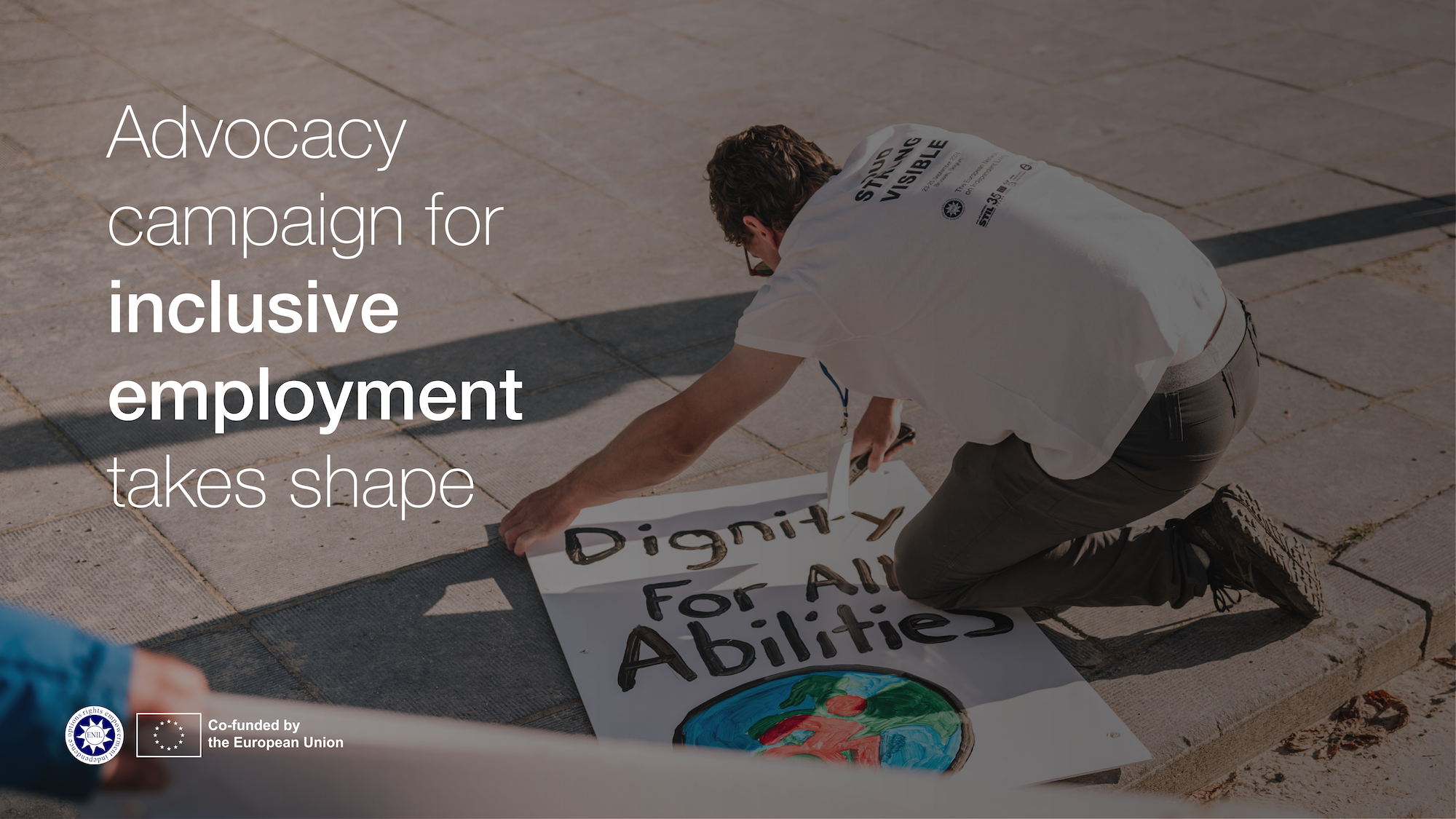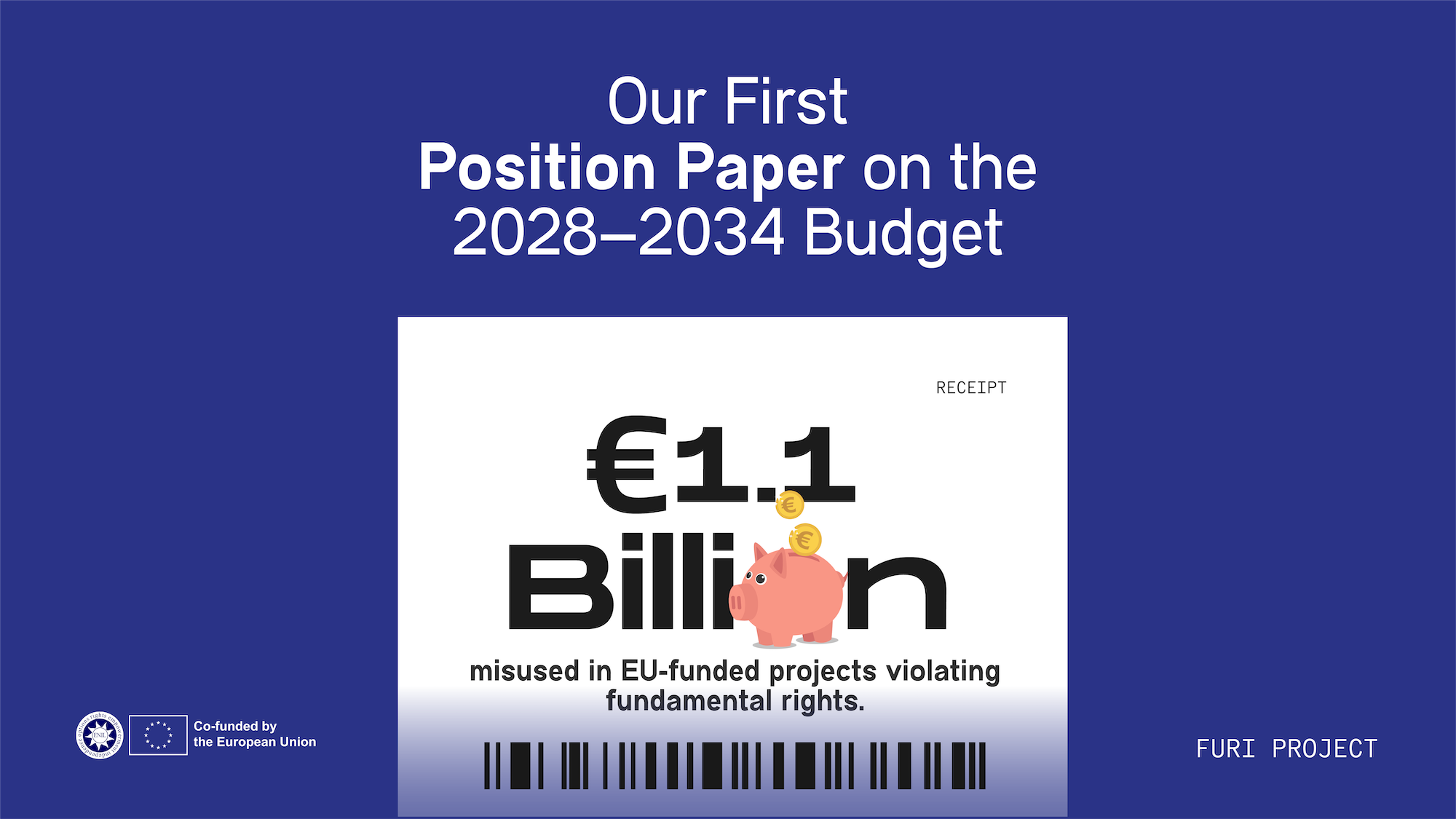Brussels, 8 March 2018 – The European Network on Independent Living (ENIL) is launching a new report today, looking at how EU funds support disabled people’s right to live independently in the community. The briefing, entitled “EU Funds and Independent Living” is based on data from 18 Member States, collected during the first year of ENIL’s EU Funds for Our Rights Campaign. It highlights numerous problems in the way Member States use EU funds, from investing into services that perpetuate the segregation and isolation of disabled people, to significant delays in launching calls to develop community-based alternatives to institutional care. The briefing aims to encourage the European Commission and Member States to improve the monitoring and complaints system for ESI Funds, and to ensure compliance of all investments with the UN Convention on the Rights of Persons with Disabilities (CRPD).
A series of reports have highlighted significant concerns about the use of European Structural and Investment Funds (ESI Funds) during the current programming period (2014 – 2020), in relation to the ‘transition from institutional care to community living’ of children, disabled people and other user groups. Similar concerns have been raised by the Committee on the Rights of Persons with Disabilities, as well as by the Council of Europe Commissioner for Human Rights, in respect of a number of EU Member States. Nevertheless, the Member States and the European Commission have failed to take the necessary measures to address problems in ESI Funds use.
ENIL’s report identifies five areas for action. Firstly, the European Commission must ensure compliance with the ESI Funds regulations, especially the so-called ex ante conditionalities. Due to inadequate strategies on the ‘transition from institutional care to community living’ Member States are failing to provide services that enable disabled people to live independently in the community. Secondly, ESI Funds are still used to segregate and exclude disabled people from their communities. Examples of this are countless small institutions (i.e. group homes) built across the EU, often in remote locations, where disabled people’s lives are not much different than in large facilities. Moreover, the systems for monitoring and evaluating projects are not able to ensure that all the projects funded support the rights of disable people, nor do organisations of disabled people have a say in how funding is allocated. Finally, the report highlights the fact that in many countries with high numbers of people in institutional care, where national funds continue propping up this outdated system of care, there are no plans to use ESI Funds for developing community capacity.
ENIL is calling on the Member States and the European Commission to take urgent steps to ensure that any projects supported by ESI Funds comply with the EU and Member States’ CRPD obligations, in particular the obligation to ensure access to the right to live independently in the community. Given that we are in the middle of the current programming period, with planning of the Post 2020 Multi-Annual Financial Framework underway, this is the right time to put in place the necessary systems to address problems in ESI Funds use. Failure to do so is likely to exacerbate the situation of disabled people in the EU, especially the hundreds of thousands of disabled people still locked away in large long-stay institutions.
“It is important for all European citizens to be sure that their money is spent properly for the right purpose and in the best interest of the people. Unfortunately, this is not the case with the EU funds for deinstitutionalisation and independent living. It is ENIL’s mission to blow the whistle and ensure that the rights of disabled people are protected”, said ENIL’s President, Kapka Panayotova.
ENIL’s Briefing “EU Funds and Independent Living” is available here.
Notes for the editors:
The “EU Funds and Independent Living” briefing will be launched at the European Parliament on 8th March, during a hearing hosted by MEPs Miriam Dalli, Jana Žitňanská, Pascal Durand and Julie Ward. The UN Special Envoy María Soledad Cisternas Reyes will deliver the opening speech. The hearing will take place in room A5G305 from 11:00 until 13:00 CET. The hashtags for the hearing are #OurFundsOurRights #IndependentLiving.
For more information about the EU Funds for Our Rights Campaign, click here. You can follow the Campaign on Facebook or Twitter.
The EU Funds for Our Rights Campaign is supported by the Open Society Foundations – Public Health Program. For more information, please contact Natasa Kokic, Campaign Coordinator, at natasa.kokic@enil.eu


